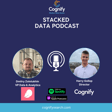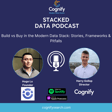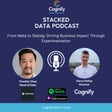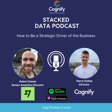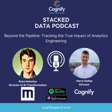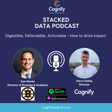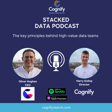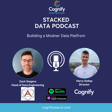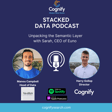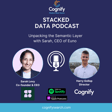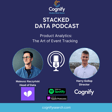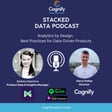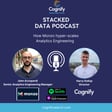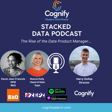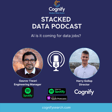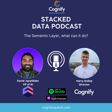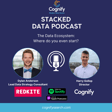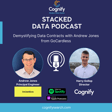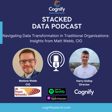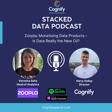
002 - The Challenges of building a Self-serve Data Platform
Uncovering a Data Mesh Self-Serve Data Platform.
This week I’m joined by Sandeep from Dojo. We discuss how Dojo is implementing a data mesh, first conceptualised by Zhamak Dehghni in her book “Delivering Data-driven Value at Scale”
Dojo’s self-serve platform empowers their distributed domains to own their data with the goal of increasing the velocity and quality of data products.
Dojos platform handles…
- £50 BILLION in transaction
- 100 million events
- 300k files of 15 different types
EVERY SINGLE DAY!
🔗 Listen now: [Link]
In this episode, I dive into why Dojo decided to follow that Data Mesh route, how they tackled the huge project, the challenges they ran into, the value it is driving and what they’d do differently now.
🌐 What You'll Learn:
How to start a data mesh project and what value it will drive.
Strategy to effectively reduce data debt.
How to align your strategy with the business to get buy-in
Top tips for interviewing and a successful career in data!
The Stacked Data Podcast isn't just about technology; it's about the stories, experiences, and lessons that drive innovation in the data landscape. Whether you're a seasoned data professional or simply curious about the future of data, this conversation offers a wealth of knowledge and inspiration.
Please give us a follow as we have lots more episodes coming!
